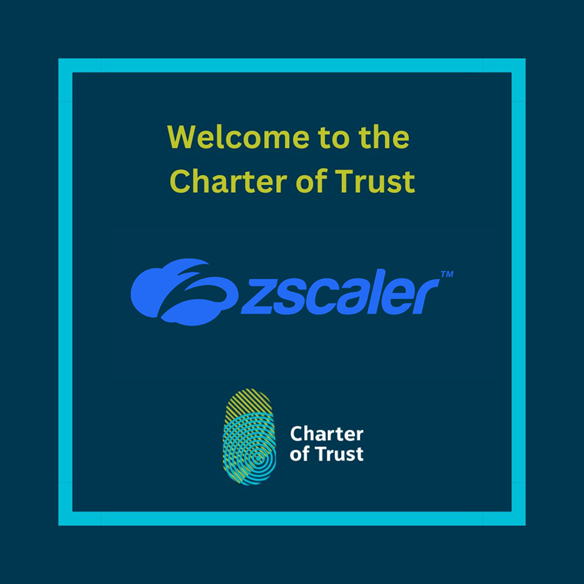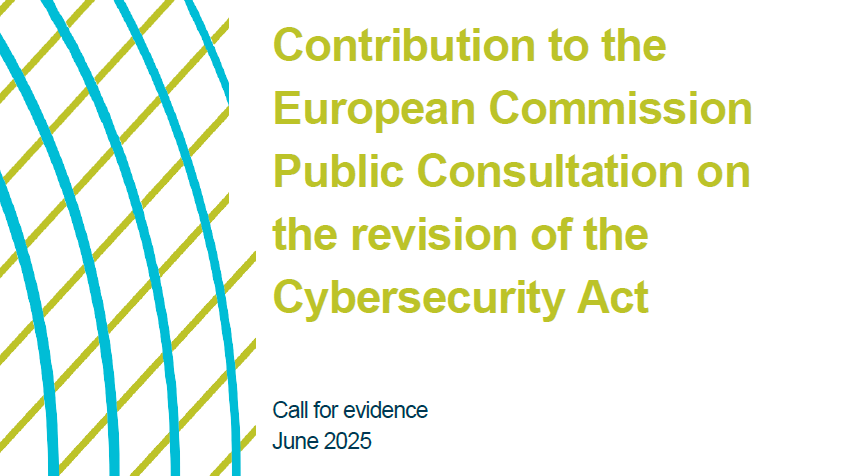Mitsubishi Heavy Industries (MHI) signed a letter of intent to join the Charter of Trust for cybersecurity in Tokyo today, expanding the Charter's reach into Asia. The company's membership is expected to be finalized by the end of September 2019. As the 17th Charter partner, MHI will be the first Asian company to join the global cybersecurity initiative.
“Cybersecurity is the key enabler for a successful implementation of the Internet of Things, as well as for protecting critical infrastructure,” said Joe Kaeser, President and CEO of Siemens. “And cybersecurity knows no boundaries. That’s why we highly appreciate Mitsubishi Heavy Industries joining us as the first big Asian company, making the digital world more trustworthy and secure. This will make our joint initiative even more global.”
“We are honored to be invited by Siemens and the other signatories to join the Charter of Trust for cybersecurity,” said Shunichi Miyanaga, President and CEO of Mitsubishi Heavy Industries. “Cybersecurity is a focal area for MHI, and we continue to place importance on developing next-generation solutions in this area. We hope to contribute to making this effort more global.”
The Charter of Trust was initially announced at the Munich Security Conference in 2018. Initiated by Siemens, it calls for binding rules and standards to build trust in cybersecurity and further advance digitalization. In addition to Siemens and the Munich Security Conference, the companies AES, Airbus, Allianz, Atos, Cisco, Daimler, Dell Technologies, Deutsche Telekom, Enel, IBM, NXP, SGS, Total and TÜV Süd signed the Charter. On February 15, 2019, the German Federal Office for Information Security (BSI), the CCN National Cryptologic Center of Spain and the Graz University of Technology in Austria joined as associate members. Charter of Trust member companies have also worked out baseline requirements to make digital supply chains more secure. The partners recently announced that they would be implementing these requirements in their own supply chains. These are important steps – especially in view of the increasing global risks.
According to the Center for Strategic and International Studies, threats to cybersecurity in 2018 caused €500 billion in losses worldwide. And threats to cybersecurity are constantly on the rise as the world digitalizes further: according to Gartner, 8.4 billion networked devices were in use in 2017 – 31 percent more than in 2016. This figure is expected to rise to 20.4 billion by 2020.


You may also like

Charter of Trust Welcomes Zscaler
Zscaler is a leading cloud enterprise security provider helping global businesses accelerate their digital transformation by becoming more agile, efficient, resilient, and secure.
With Zscaler as a partner in the Charter of Trust, we aim to strengthen global cyber resilience through trust – by fostering actionable collaboration between industry leaders, governments, and public-private platforms. Zscaler brings robust expertise and innovation to the table, making it the ideal partner to drive this mission forward.
“Zscaler is excited to drive meaningful change alongside our new partners, laying a foundation of trust essential for successful digital transformation,” said Sam Curry, Zscaler CISO. “In today’s world, the need for reducing inherent trust and default access has never been greater. To truly stay ahead of ever-evolving threats, we must unite as a coalition of practitioners. Cyber attackers aren’t taking breaks, and with advancements like artificial intelligence, quantum cryptography, and emerging technologies on the horizon, collaboration is the key to securing the future.”
“We are proud to welcome Zscaler to the Charter of Trust. Their focus on cybersecurity innovation and commitment to openness reflect our shared ambition to create a safer, more resilient digital future. Together, we’ll strengthen trust, transparency, and security across the global digital landscape.” highlighted Dr. Summit Chada, Charter of Trust Co-Chair and COO Group Security & Business Lines CISO at Atos.
“With Zscaler as a Partner of the Charter of Trust, we believe that we can strengthen the global commitment to secure digital transformation by combining technological innovation with the Charter of Trust’s collaborative approach to cybersecurity leadership.” Ralf Schneider, Charter of Trust Co-Chair and Senior Fellow and Head of Cybersecurity and NextGenIT Think Tank at Allianz SE, welcomes Zscaler to the Charter of Trust.
We are excited to join forces and work together to advance digital trust and security across industries.

Contribution to the EU Commission Public Consultation on the revision of the Cybersecurity Act
We support Policy Option 2, which focuses on targeted regulatory measures that address key challenges without creating unnecessary complexity. In this context, we emphasize the need to enhance the role and resources of ENISA, to ensure effective implementation of both current legislation and the European Cybersecurity Certification Framework (ECCF).
Our recommendations aim to improve transparency, collaboration, and efficiency across the EU’s cybersecurity landscape. These include:
- Introducing clear timelines for the development of certification schemes.
- Enhancing stakeholder engagement throughout the process.
- Establishing more structured communication channels between ENISA, the Stakeholder Cybersecurity Certification Group (SCCG), and sectoral ISACs (Information Sharing and Analysis Centers).
We call for a stronger ECCF, one that is transparent, inclusive, and aligned with international standards to foster global interoperability and ease compliance for organizations across borders. Equally critical is the harmonization of certification practices across EU member states and the mutual recognition of certifications to minimize regulatory fragmentation.
The Charter of Trust advocates for technically robust, standards-based certification schemes, with well-defined roles and responsibilities. We also stress the need for clarity on the interplay between voluntary and mandatory certifications, particularly in relation to the upcoming Cyber Resilience Act (CRA).
To streamline compliance and reduce administrative burden, we propose a unified, risk-based incident reporting regime that consolidates requirements under regulations such as NIS2, CRA, GDPR, and DORA. This would not only simplify reporting for organizations but also enhance the EU’s overall cyber resilience. In addition, we recommend incorporating liability protections and grace periods for incident disclosure.
Finally, we urge the Commission to strengthen supply chain security by adopting a risk-based classification approach and establishing baseline cybersecurity requirements for ICT suppliers.
The Charter of Trust remains fully committed to supporting the European Commission in shaping a secure, resilient, and trusted digital future for Europe. We look forward to continued collaboration in building a cybersecurity framework that meets the needs of all stakeholders, today and in the years to come.




